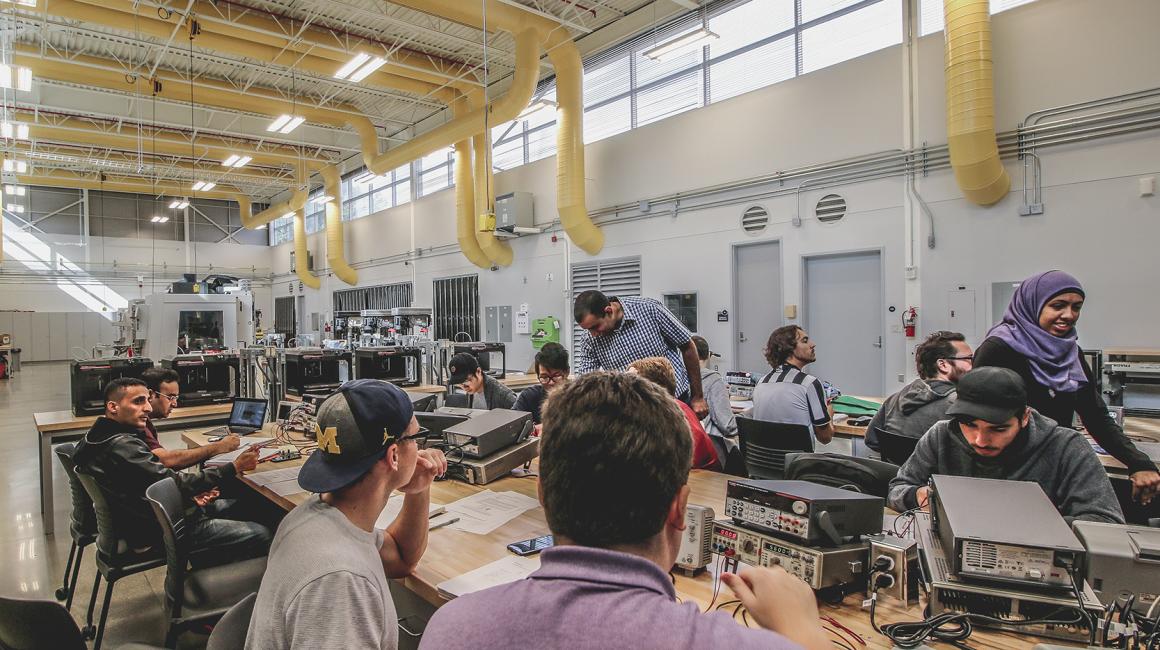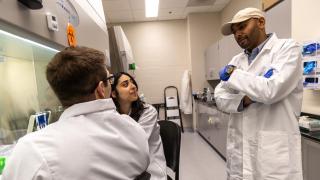
UM-Dearborn students have built internationally award-winning vehicles, rockets that launched thousands of feet into the air, and more. And they earned accolades for their projects without having a campus-based shop and fabrication space.
But that’s going to change: The Student and Professional Shop in the Manufacturing Systems Engineering Lab (MSEL) high bay opened Sept. 11.
The dedicated maker space includes a 24-seat classroom space, several 3D printers, a metal fabrication shop, and areas for welding, carpentry and industrial engineering.
“We’ve had winning competition teams for years,” said College of Engineering and Computer Science (CECS) Dean Tony England. “Now, imagine what they’ll be able to do.”
The renovated space provides a place for the campus community to demonstrate hands-on classroom learning and for students to test their designs through product creation.
“This campus has always been sensitive about what it takes for industries in the region and for our students to succeed,” England said. “The Student and Professional Shop is a centralized maker space with all new equipment—it’s what you’d find in a modern industrial space.”
The MSEL space contributes to the competitive 21st century education—which includes interactive lessons, collaboration and hands-on learning—students get on campus.
“The transformation is incredible. Now we have an instructional space so faculty can teach how the equipment functions and then move the class over and use it,” said Facilities Manager Eric Kirk, who oversaw the project. “As an engineer, it is important to have the ability to build what you are designing and to test it. Now, after learning, students can design, fabricate and test.”
Open daily from 7:30 a.m. to midnight, the shop will have a supervising technician present to answer questions and teach students how to use the machinery so they can become certified and later use it independently. The facility currently is used by CECS students and faculty, but Kirk and England envision other areas on campus also benefiting from it in the future.
“Different backgrounds will bring different ideas and enrich the creative environment,” England said.
And it is not only a benefit for the students. Kirk said employers are pleased with the addition to campus too.
“We’ve done several tours with companies and they are excited to see this. It will give students fabrication experience, which means they won’t need as much training to do an operation,” he said. “Having this shop creates an environment that makes our highly sought after students even more employable.”




